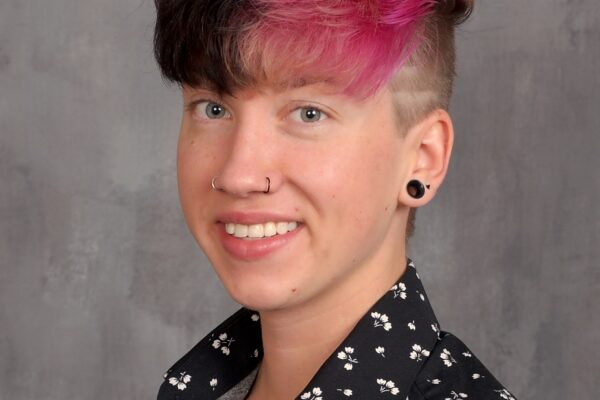The opportunity to work for the ACLU of Colorado over this past year has allowed me to observe the way that activists everywhere have successfully combatted systemic oppression with imaginative problem solving.
Activism has always been daunting work. It has always felt as though I must ask permission to fight for social justice, prove why liberation is important, or seek out the support of capitalist entities to help propel the movement. To an extent this is true, what helps to propel non-profits forward are the same things that often keep people's voices unheard; privileged investors, systems of approval, etc.
When I first began at the ACLU in June of 2022, most of our efforts were pointed towards encouraging young people to vote. Civic life has for centuries centered straight white men. During elections, we continuously see glaring corporate-style ads for different candidates that often only speak to the concerns of the privileged few. Historically disenfranchised communities have had to face barriers to civic engagement. The issues with voting across the country seem daunting and nearly impossible to overcome, but by means of imagination, the ACLU and other non-profits alike structured creative campaigns to counteract deeply-rooted systemic oppression.
The foundation of creative problem solving is community, providing space where communities can exist safely and partake in ideation. We have seen this premise in countless activist movements throughout history. During my internship, I was given the opportunity to develop something similar: Art the Vote.
As an artist in Denver, I am constantly looking for opportunities where activism and creativity can intersect. Artists have always pushed boundaries and asked audiences to contemplate real life scenarios that may be uncomfortable. We ask people to investigate their own privileges, to get comfortable with being uncomfortable. This same notion is what creative problem solving in activist spaces asks us to examine.
Art the Vote was a project on behalf of the ACLU’s We Are the Vote campaign. It launched to bring in young artists and encourage them to use their visual talents to explore the intricacies of the voting system. Denver, much like many other cities, has a large circle of artists actively engaged in the community. I realized quickly that in targeting young voters we had to develop imaginative ways for engagement.
This event allowed young artists to come together for an evening of boundary-pushing conversation and celebration of local artists involved in activism. The evening was hosted by Chloe Duplessis, a speaker and artist who focuses on people navigating disability and the voices of people of color. We also highlighted several artists who submitted to an artist call, and young people displayed and sold their artwork.
The ACLU has taught me the critical importance of imaginative problem solving. This and community-oriented structures keep our fuel burning when we are all exhausted. When we can bring in creative outlets such as artwork, speeches, and videos, we are not only fighting for social justice change, but we are also reimagining what work and productivity can look like. My time at the ACLU allowed me to not only partake in imaginative community building, but also to organize and lead my very own event. I now understand even further the importance of cultivating an environment of active imagination in the motivation to dismantle existing power structures.

